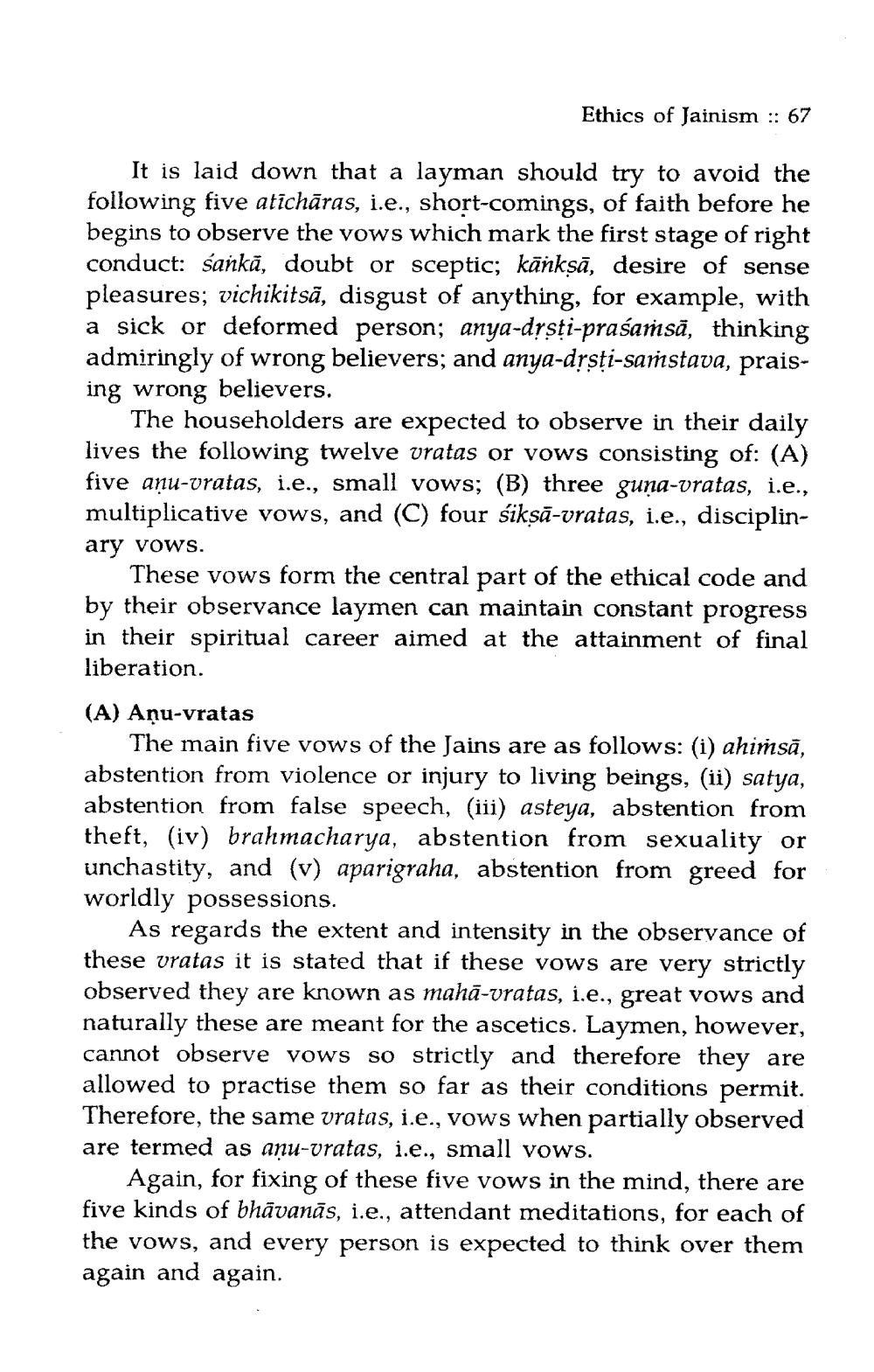________________
Ethics of Jainism :: 67
It is laid down that a layman should try to avoid the following five atichāras, i.e., short-comings, of faith before he begins to observe the vows which mark the first stage of right conduct: sankā, doubt or sceptic; kārksā, desire of sense pleasures; vichikitsā, disgust of anything, for example, with a sick or deformed person; anya-dȚsți-prasaṁsā, thinking admiringly of wrong believers; and anya-drsti-samstava, praising wrong believers.
The householders are expected to observe in their daily lives the following twelve vratas or vows consisting of: (A) five anu-vratas, i.e., small vows; (B) three guna-vratas, i.e., multiplicative vows, and (C) four siksā-vratas, i.e., disciplinary vows.
These vows form the central part of the ethical code and by their observance laymen can maintain constant progress in their spiritual career aimed at the attainment of final liberation.
(A) Aņu-vratas
The main five vows of the Jains are as follows: (i) ahiṁsā, abstention from violence or injury to living beings, (ii) satya, abstention from false speech, (iii) asteya, abstention from theft, (iv) brahmacharya, abstention from sexuality or unchastity, and (v) aparigraha, abstention from greed for worldly possessions.
As regards the extent and intensity in the observance of these vratas it is stated that if these vows are very strictly observed they are known as mahā-vratas, i.e., great vows and naturally these are meant for the ascetics. Laymen, however, cannot observe vows so strictly and therefore they are allowed to practise them so far as their conditions permit. Therefore, the same vratas, i.e., vows when partially observed are termed as anu-vratas, i.e., small vows.
Again, for fixing of these five vows in the mind, there are five kinds of bhāvanās, i.e., attendant meditations, for each of the vows, and every person is expected to think over them again and again.




